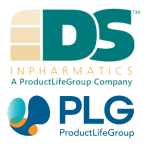When navigating preliminary product development strategies, looking for early guidance from regulators can be invaluable. Even so, the task of seeking approval from the FDA can be extremely difficult. It has become crucial to get your relationship with the FDA off to a solid start from day one.

Image Credit: DS InPharmatics
The FDA recognizes that during Pre-IND meetings, CMC-specific discussions are usually unnecessary when projects are “straightforward.” Yet, certain new chemical entities (NCE’s) and biologics are anything but straightforward, unlike more traditional 505(b)(2) products.
These novelties are able to produce unique manufacturing roadblocks that impede the path to clinical development. To make matters even more difficult, sponsors must grapple with the unending race between the cost of development and advancing technologies, as it is almost impossible for any sponsor to outspend the clinical program.
Therefore, agency meetings are an opportune time for sponsors to align with FDA and/or the EMA on CMC strategies that will enable product development while maintaining regulatory compliance.
It is critical to understand the drug development process and the myriad tasks and milestones that are vital to a comprehensive development plan in order to ensure commercial and scientific success.
The examples below highlight CMC-specific topics that sponsors should talk about during discussions around your product.
The selection and justification of starting materials
The choice of appropriate Regulatory Starting Materials (RSMs) is a key challenge for any developmental product. Some products are extremely sensitive to slight modifications in starting material quality which means that settling on non-GMP materials early in the process may bring about significant challenges during later phase development.
Furthermore, some manufacturing processes are sometimes reliant on animal- or human-derived raw materials, or master and working cell banks. Ideally, process(es) should be optimized to exclude these materials or avoid big alterations in later phases, but if not, sponsors must make sure that starting materials are suitably compliant, high-grade, and supplied with the necessary supportive regulatory documentation.
Think about discussing your approach to Regulatory Starting Material choice with the FDA or EMA. Early engagement on this topic may decrease the requirement for significant process changes late in the game. This question-and-answer (Q&A) document is intended to provide additional clarification and to promote convergence and improve harmonization of the considerations for the justification and selection of starting materials and of the information that should be provided in marketing authorization applications and/or Master Files.
Phase appropriate approaches to manufacturing
As development grows so does the diversity of choices and timing. At the same time sponsors are facing previously unseen, unique manufacturing challenges. For instance, terminal sterile filtration is a vital part of the purification process for therapeutic proteins.
A vital part of most drug substance supply chains considering costs and availability is sourcing of API. Scale-up and process change issues are frequently encountered during development of sterilization processes for aseptically filled and many parenteral products.
When facing these types of challenges, alternative approaches using science- and risk-based justifications should be considered for the proposed control strategy in the absence of traditional practices.
Early alignment between agency and sponsors can light the way for manufacturing plans which are both suitable to ensure phase-appropriate compliance and technically viable.
This guidance provides recommendations to sponsors of investigational new drug applications (INDs) on the chemistry, manufacturing, and controls (CMC) information that would be submitted for phase 2 and phase 3 studies conducted under INDs.
Determining acceptance criteria
In order to appropriately identify and determine the critical quality attributes and critical process parameters a fundamental understanding of the product’s manufacturing process is vital.
While for some products that is easier said than done, it is crucial to gather the FDA’s input on analytical methodology early in development. It is worth considering whether the proposed methodologies are enough for the stage of development that you are in.
Can alternate assays or orthogonal techniques be used to supply further insight if you are not completely sure of the process? Could the FDA recommend any further attributes that should be assessed and controlled early on?
With the continued rise of new drug applications the FDA is gaining significant product-specific experience. Based on their internal learnings from historical reviews they could help to steer you in the right direction to support specification development.
Where the current guidance does not fit
The Current CMC guidance might not fit due to the nature of the product in multiple areas of product development. There may not be enough final product to permit full stability testing or retain sampling, too short of a shelf life to enable traditional sterility testing, or analytical methodology which simply does not work with the product as development progresses.
The prospect of a formal meeting with the FDA can be more daunting than a blind date for first-time sponsors, but it is more than possible to nail the first impression with ample preparation and the proper tools.
All sponsors should exercise the opportunities to engage in early discussions with the agency despite the natural apprehension, as it is a crucial first step in determining a strong working relationship and familiarizing the review division with the program. Recent FDA announcements highlight the Agency’s perspective on the crucial nature of these early discussions.
It can be difficult to follow some of the most basic requirements laid out by develop mental guidance documents. These areas should be discussed with FDA/EMA and some alternative solutions or controls to these issues should be provided. If these approaches will be suitable throughout the development of your program ask the agencies early on.
It is vital to show the agency that you are acknowledging gaps that might exist and that you are trying to address them early. They understand the challenges that products experience and may supply some critical guidance on your methods and recommendations on the corresponding control strategy.
Although the Pre-IND and later in development, the End of Phase 2 (EoP2) meeting (Type B Meetings) have long been the gold standard for seeking preliminary feedback at each milestone, sometimes a single interaction is just not enough for complicated programs.
So, Type C Meetings can afford sponsors increased opportunity to connect with FDA staff, further upstream in the development process prior to an EoP2 interface to supply additional touch points during early development.
Further to vetting development considerations and streamlining development plans, the doubling of face time with FDA also enables expanded discussion pertaining to CMC-specific strategies.
The unique CMC challenges faced by sponsors are not insurmountable, but they can complicate the path to clinical study significantly. For both well-characterized proteins and traditional small molecule pharmaceuticals, the manufacturing processes must consider commercial scalability and viability at a very early stage.
These challenges underline how crucial CMC-focused communications with the FDA are, early and often. Sponsors can work collaboratively with the agency to de-risk complex CMC-specific roadblocks on the road toward bringing these innovative medicines from concept to approval by maximizing milestone engagements.
Acknowledgments
Produced from materials originally authored by Edward A. Narke from Design Space Inpharmatics.
About DS InPharmatics 
DS InPharmatics (DSI) provides regulatory, technical, and project management consulting services to healthcare product companies that manufacture and/or market pharmaceuticals, biopharmaceuticals, and cellular and gene therapy products.
Since 2007 we have provided our clients with innovative strategies and exceptional quality work products intended to enhance product development, approval, and marketing presence. Whether advocating CMC strategy, directing CMC operations or developing CMC submission content that represent the best interests of emerging biotech, we focus on the critical CMC issues and build programs that enhance development.
In April 2021 we were thrilled to announce that DSI has just become part of ProductLife Group.
French-headquartered ProductLife Group (PLG) is well-known in the Life Sciences market. It has a track record of successfully managing global outsourcing programs and insourcing services for its international client base. The company is on a mission to help transform human health outcomes by optimizing regulatory affairs, safety & vigilance, and quality compliance for life sciences organizations worldwide.
The fit between our two organizations could not be more perfect. We will complement PLG's growing biotech services portfolio. US biotech sponsors recognize DSI as a leader in consulting for go-to-market strategies and RA pre-market consulting. At the same time, PLG has a strong reputation for managing end-to-end outsourcing of regulatory affairs and pharmacovigilance activities worldwide.
Our merger with PLG will harness our combined strengths, offering our clients on both sides of the Atlantic support with their developed drugs approvals and post-approvals compliance, plus advisory services on the best market strategies to deliver a rapid ROI on their development. Together we will offer our clients increased pharmacovigilance capabilities - including a QPPV; pharmacovigilance consulting; and a fully validated safety database - as well as complementary toxicology-related services; RIM/electronic document management services; and support for medical device regulatory requirements.
We see enormous potential in this new chapter for DSI and you, our clients. As a PLG company, we have the opportunity to become part of a global force in life sciences regulatory and compliance solutions and services, and we're incredibly excited to add our momentum to that effort.
Sponsored Content Policy: News-Medical.net publishes articles and related content that may be derived from sources where we have existing commercial relationships, provided such content adds value to the core editorial ethos of News-Medical.Net which is to educate and inform site visitors interested in medical research, science, medical devices and treatments.